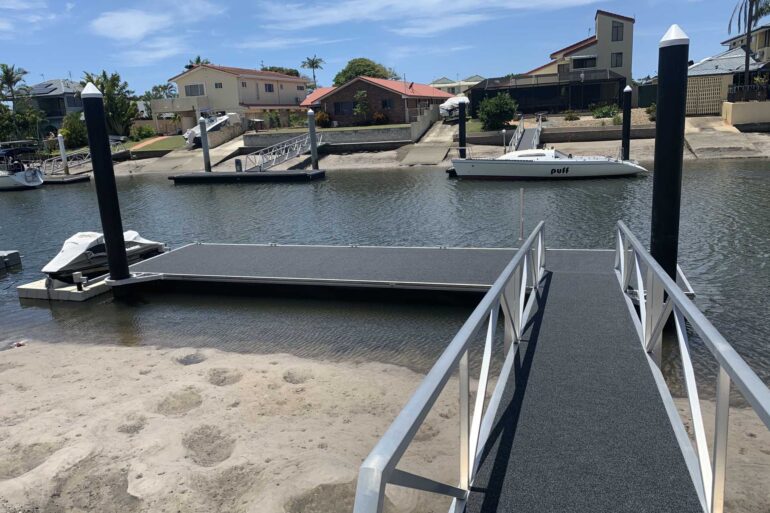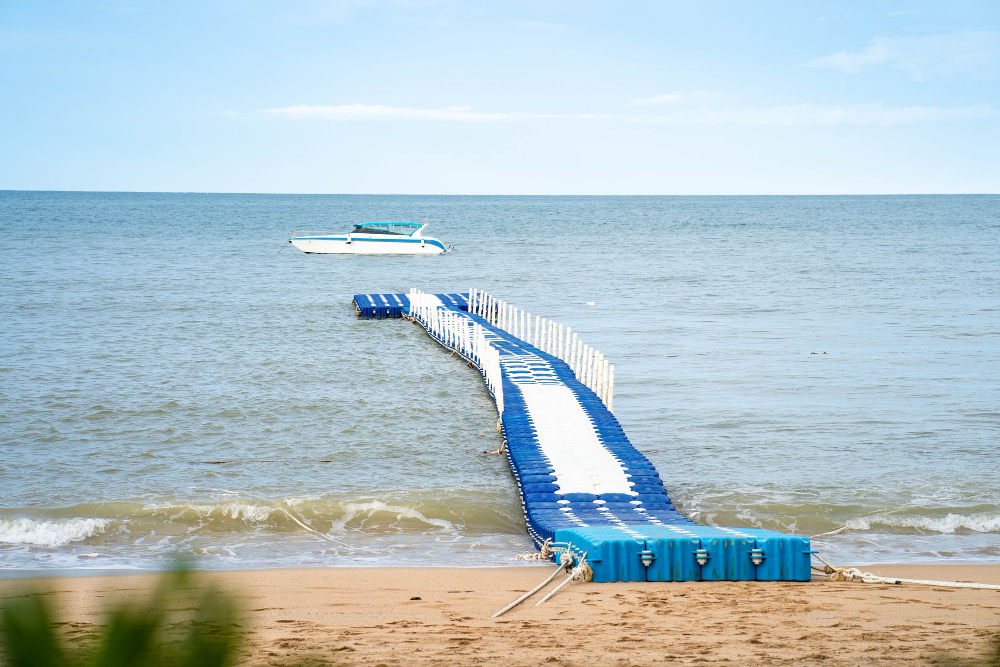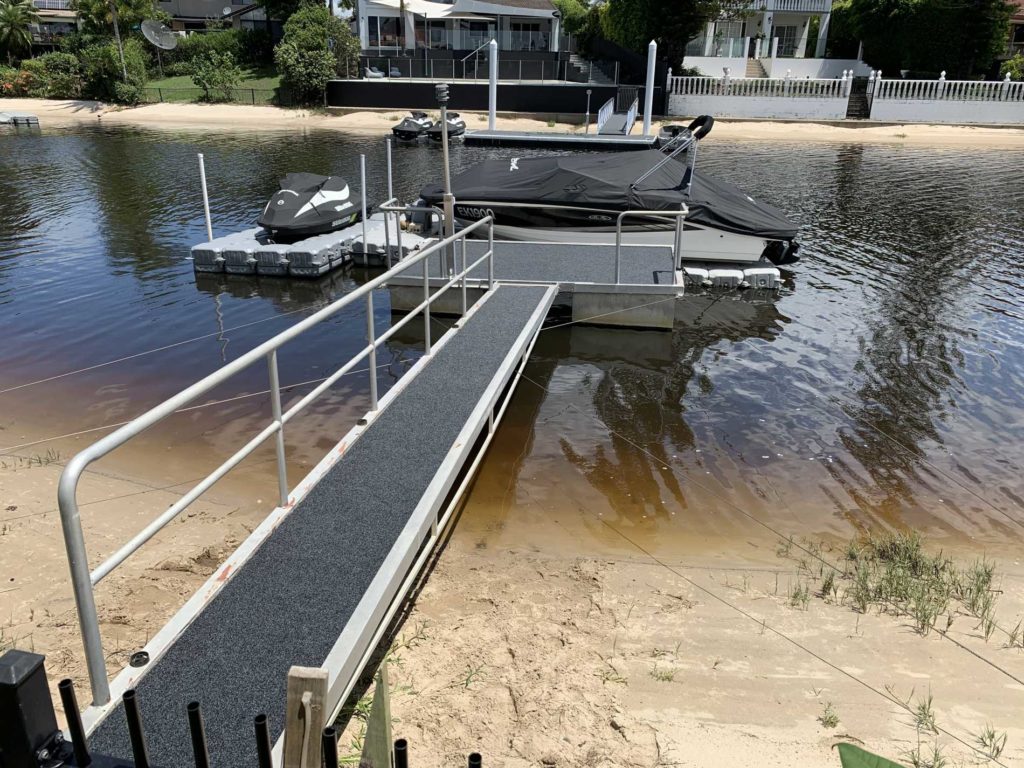
It goes without saying that here at Micks Marine Maintenance, we are ‘Team Floating Pontoon’. However, there is an alternative market for modular docks, which many of our customers may consider before eventually deciding to invest in a floating pontoon.
While timber jetties are the biggest competitors of floating pontoons, modular docks are another viable option worth investigating. While they are much more prevalent in the United States than in Australia, they are slowly growing in popularity here. And, if you’re doing your due diligence regarding residential boat mooring options, then no doubt you’ve come across modular docks.
Today, we will take a non-biased look at modular docks and compare them to floating docks to help you decide which mooring option is best for your needs, boat, property, and budget.
So without further ado, please continue reading to discover how modular docks stand up to floating pontoons.
Design

Modular Dock

Floating Pontoon
A modular dock is a floating dock made from multiple connecting modular floats in cube-like shapes. The floats are generally made from UV-stable high-density polyethylene (HDPE) with a hollow centre to provide floating qualities. They are very simplistic in design and construction. Unlike floating pontoons, which consist of a floating base topped with a concrete deck and marine carpet, they only contain one layer of modular floats.
Accessories
The modular dock design limits the range of dock accessories. While they can also feature optional handrails, fenders, winch systems, cleats, and bollards, functional accessories are less accessible. On the other hand, floating pontoons offer various accessories, including fish cleaning stations, light posts, hose reel stands, kayak holders, and lockable storage systems. In fact, if it can be fabricated, it can be fixed to a floating pontoon. The same cannot be said about the hollow modular floats.
Configuration
Modular docks offer various configurations to create a system of the required size and shape. Their ability to expand or change form to support a bigger boat or additional PWCs is one of their most significant advantages. Simply purchase more ‘cubes’ and fixings to make the dock larger. This configuration flexibility may make modular docks more favourable over floating pontoons that don’t offer the same level of customisation options after installation.
Fixing
One of the most significant disadvantages of modular docks is their inability to provide a solid fixing. Unlike floating pontoons that offer various fixing options, modular docks are only supported by shore moorings, meaning they are not suitable for rough water conditions that experience high winds and rough seas. Piles are needed in conjunction with the modular floats to make modular docks withstand turbulent conditions, making this “affordable docking option” not as affordable after all.
Floating pontoons feature shore moorings also, but also offer additional support. Strut pontoons feature a strut arm and cables to provide extra strength and fixing, cable pontoons feature cross-over cables to provide additional horizontal support, and pile pontoons, the most robust of all, feature strong reinforced concrete piles for vertical support.
Price
Due to the simplicity of their design, modular docks are seen as the “affordable docking option”, being cheaper than pontoons and jetties. However, it comes with limitations. They are an entry-level docking system and are not ideal for rough water conditions or for those wanting to customise their dock with accessories.
Modular docks may appear cheap at first glance, but as the dock size becomes large enough to accommodate a boat, they become much more costly. Furthermore, in most cases, an additional gangway or ramp device is required to gain safe access to the dock.
Conclusion
Modular docks are certainly an option for docking boats and PWCs, offering many pros and cons when compared to floating pontoons. They present unlimited configurations and are easy to reconfigure to meet your growing requirements in terms of design. However, they offer limited options in terms of accessories – there’s little ability to integrate custom-fabricated accessories, unlike floating pontoons. Also, because of their construction, modular docks are not ideal in rough waters. They’re best suited for quiet, calm waters such as canals.
While modular docks can be a cheaper option, they are an entry-level docking option. Besides their flexible configuration options, which is their true advantage, they cannot tick all the boxes in terms of needs, boat, property, and budget.